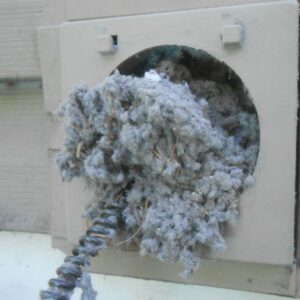Gutters are an essential part of your home’s drainage system, channeling water away from the roof and foundation to prevent water damage. Despite their importance, gutters are often overlooked until a problem arises—typically in the form of clogs, leaks, or even foundation damage. Regular gutter cleaning is key to avoiding these costly issues, but how often should you clean your gutters to keep them in optimal condition?
The answer varies depending on several factors, including the type of climate you live in, the surrounding landscape, and the type of gutter system installed on your home. In this article, we’ll explore expert recommendations for gutter cleaning frequency, the risks of neglecting this task, and tips for maintaining a healthy drainage system.
Why Gutter Cleaning Is Essential
Before diving into how often you should clean your gutters, it’s important to understand why this task is so critical to the health of your home. When gutters are functioning properly, they collect rainwater and direct it away from your roof, walls, and foundation. However, when gutters become clogged with leaves, twigs, dirt, and other debris, they can no longer perform this vital function. According to our friends at Ned Stevens Gutter Cleaning of L.I., Inc., this can lead to several serious problems:
- Water Damage to Your Roof: Clogged gutters prevent rainwater from draining properly, causing it to pool on your roof. Over time, standing water can seep into your roof’s structure, leading to rot, leaks, and mold growth.
- Foundation Damage: One of the main purposes of gutters is to direct water away from your home’s foundation. When gutters overflow, water can pool around the foundation, leading to cracks, erosion, and, in extreme cases, structural damage.
- Basement Flooding: If water isn’t diverted away from your home’s foundation, it can seep into your basement, causing flooding and potentially damaging your belongings and appliances. Regular gutter cleaning helps prevent this by ensuring that water is properly channeled away from your home.
- Exterior Damage: Overflowing gutters can cause water to run down the sides of your home, leading to unsightly stains, peeling paint, and damage to siding. Additionally, the excess moisture can encourage the growth of mold and mildew on your home’s exterior.
- Pest Infestations: Clogged gutters are a prime breeding ground for pests such as mosquitoes, termites, and rodents. These pests can take up residence in the debris that accumulates in your gutters, and they may eventually find their way into your home.
Given the importance of clean, functioning gutters, regular maintenance is crucial to avoid these potential problems. But just how often should you be cleaning your gutters?
Factors That Affect Gutter Cleaning Frequency
There is no one-size-fits-all answer to the question of how often gutters should be cleaned. Several factors come into play, including the location of your home, the type of trees on your property, and the local climate. Let’s take a closer look at the key factors that influence gutter cleaning frequency:
1. The Type of Trees Around Your Home
One of the biggest factors in determining how often you should clean your gutters is the type of trees that surround your home. If your property is heavily wooded or has trees that shed a lot of leaves, such as maples, oaks, or pines, your gutters will likely require more frequent cleaning. Pine needles, in particular, can quickly clog gutters, so if you have coniferous trees near your home, it’s a good idea to check your gutters more often.
On the other hand, homes with fewer trees or those with evergreen trees that don’t shed as much debris may not need to have their gutters cleaned as frequently.
2. Climate and Weather Conditions
The climate in your region also plays a significant role in gutter maintenance. For instance, homes in areas that experience heavy rainfall or frequent storms will require more regular gutter cleaning to ensure that the system can handle large volumes of water. In contrast, homes in drier climates may not accumulate as much debris in their gutters and can go longer between cleanings.
Seasonal weather changes also affect how often you should clean your gutters. In the fall, when trees shed their leaves, your gutters will likely fill up more quickly, necessitating more frequent cleanings. Conversely, in the spring, when plants begin to bloom and produce pollen, your gutters may also collect more debris.
3. Type of Gutter System
Not all gutters are created equal. The type of gutter system you have installed can impact how often you need to clean it. For example, traditional open gutters are more prone to clogs, as they can easily collect leaves, twigs, and other debris. In contrast, gutter systems with guards or covers are designed to block larger debris from entering the gutter, reducing the frequency of cleaning. However, even gutter guards need maintenance, as small particles like dirt and shingle granules can still accumulate over time.
4. The Slope of Your Roof
The slope, or pitch, of your roof, can also influence how much debris collects in your gutters. Homes with a steep roof pitch are less likely to experience gutter clogs, as debris tends to slide off the roof more easily. On the other hand, homes with flatter roofs may see more debris collecting in the gutters, as there’s less gravitational force pushing it off.
Expert Recommendations for Gutter Cleaning Frequency
Taking these factors into account, most experts recommend cleaning your gutters at least twice a year—once in the spring and once in the fall. These are the times of year when gutters are most likely to accumulate debris from blooming plants in the spring and falling leaves in the fall.
However, depending on your specific circumstances, you may need to clean your gutters more frequently. Here’s a breakdown of recommendations based on various factors:
- Heavily Treed Areas: If your home is surrounded by trees that shed a lot of leaves, you may need to clean your gutters as often as every three months to prevent clogs from forming.
- Rainy or Storm-Prone Climates: In areas that experience heavy rainfall or frequent storms, cleaning your gutters every three to four months is recommended to ensure that water can flow freely and prevent overflow.
- Homes with Gutter Guards: Even if you have gutter guards or covers, you should still clean your gutters at least once a year to remove small debris that may have accumulated.
- Desert or Dry Climates: Homes in drier climates with fewer trees may only need gutter cleaning once a year or even less frequently, depending on how much debris accumulates.
Signs That Your Gutters Need Cleaning
While following a regular cleaning schedule is important, it’s also essential to watch for signs that your gutters need immediate attention. Here are some key indicators that your gutters may be clogged:
- Water Overflowing from Gutters: If you notice water spilling over the sides of your gutters during a rainstorm, it’s a clear sign that they’re clogged and need to be cleaned.
- Sagging Gutters: Gutters that are weighed down with debris can start to sag or pull away from the house. This is a sign that they need to be cleaned immediately before they cause further damage.
- Plant Growth in Gutters: If you see plants or grass growing out of your gutters, it’s time for a thorough cleaning. This indicates that debris has been sitting in the gutters for an extended period, creating a fertile environment for plant life.
- Pests or Birds Near Gutters: If you notice an increase in pests, such as mosquitoes, rodents, or birds, around your gutters, it may be a sign that your gutters are clogged with organic material that’s attracting these creatures.
Conclusion
Regular gutter cleaning is a crucial part of home maintenance that helps prevent water damage, foundation problems, and pest infestations. While most homeowners should aim to clean their gutters at least twice a year, the specific frequency will depend on factors like the type of trees surrounding your home, the climate you live in, and the design of your gutter system. By keeping your gutters clean and free of debris, you can protect your home from costly repairs and ensure that your drainage system functions effectively year-round.









